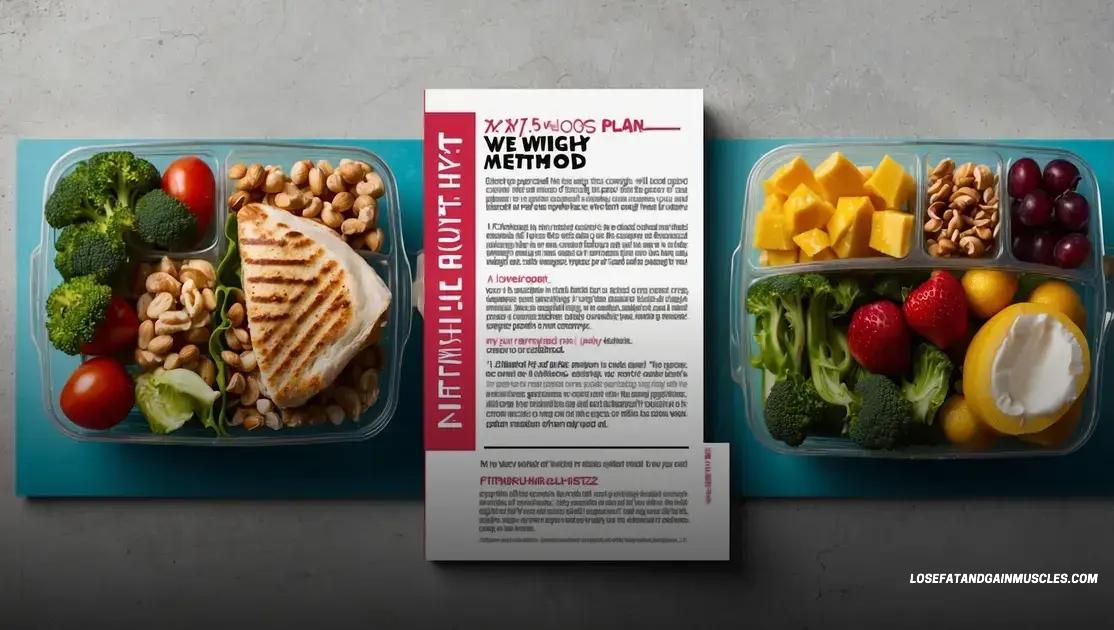What is the 21-Day Fast for Weight Loss? Discover Its Secrets!
The 21-day fast for weight loss is a method involving three weeks of food abstention, primarily consuming water or minimal calories. It can lead to rapid weight loss, enhanced mental clarity, and improved metabolic health, but it may also carry risks such as nutrient deficiencies and muscle loss.
The 21-day fast for weight loss is an intriguing and transformative approach aimed at helping individuals shed pounds and enhance their overall health. This extended period of fasting not only promotes weight loss but also improves metabolic health and mental clarity. In this article, we’ll delve into what the 21-day fast entails, explore its numerous benefits, review potential risks, and discuss practical alternatives to help you make informed decisions about your health journey.
Understanding the 21-Day Fast
The 21-day fast is a prolonged fasting period that typically involves abstaining from all food and consuming only water, or in some cases, broth or juice. This method is thought to help the body reset its metabolism and promote various health benefits. During this period, your body undergoes several changes that support weight loss and improve overall health.
What Happens During a 21-Day Fast?
As you enter a 21-day fast, your body first uses glucose stored in the liver and muscle as energy. After about 24 hours, it begins to shift into a state called ketosis, where it starts to burn fat for energy instead of carbohydrates. This process can lead to significant weight loss during the fasting period.
Types of 21-Day Fasting
There are different approaches to a 21-day fast. Some people opt for a total water fast, while others may incorporate intermittent fasting patterns or allow small amounts of calorie-free beverages. It’s essential to choose an approach that suits your lifestyle and health needs.
Preparing for a 21-Day Fast
Before embarking on a 21-day fast, proper preparation is crucial. Start by gradually reducing your caloric intake in the days leading up to the fast. This can help mitigate any shock to your system and improve your chances of success. Hydration is also key; ensure you drink plenty of water during your fast.
During the Fast
While fasting, it’s important to listen to your body. Some individuals may experience feelings of hunger, fatigue, or irritability in the initial days. These symptoms are often temporary. Engaging in light physical activities, staying hydrated, and practicing mindfulness can help manage discomfort.
Post-Fast Considerations
After completing a 21-day fast, it’s important to reintroduce food gradually. Starting with light meals, such as broth or smoothies, can help your digestive system adjust. Pay attention to how your body reacts to different foods during this phase.
Benefits of 21-Day Fasting for Weight Loss

The benefits of 21-day fasting for weight loss are numerous and significant. This fasting method can lead to quick and effective fat loss, but it also offers various other health improvements that go beyond weight management.
Rapid Weight Loss
One of the most noticeable advantages of a 21-day fast is the potential for rapid weight loss. By restricting calories and using fat stores for energy, individuals may see substantial changes on the scale within a short period.
Improved Metabolic Health
Fasting can enhance metabolic health by lowering insulin levels and improving insulin sensitivity. This means that your body becomes more efficient at using glucose for energy, which can be particularly beneficial for those at risk of type 2 diabetes.
Enhanced Mental Clarity
During prolonged fasting, many people report increased mental clarity and focus. This phenomenon may be due to the body shifting to use ketones—a type of energy derived from fat—rather than glucose, which can help sharpen concentration.
Cellular Repair and Autophagy
Fasting triggers a process called autophagy, where the body cleans out damaged cells and regenerates new ones. This cellular repair mechanism contributes to overall health and longevity.
Reduced Inflammation
Another benefit is the potential reduction in inflammation levels. Some studies suggest that fasting may help decrease inflammatory markers in the body, leading to improved health and a lower risk of chronic diseases.
In conclusion, the 21-day fast not only aids in weight loss but also brings about numerous health benefits, including improved metabolic function, mental clarity, cellular repair, and reduced inflammation.
Risks Associated with Prolonged Fasting
While there are many benefits to a 21-day fast, it is essential to consider the risks associated with prolonged fasting. Understanding these risks can prepare you for any challenges you might face.
Nutrient Deficiencies
Extended fasting can lead to nutrient deficiencies, as your body misses out on essential vitamins and minerals found in food. Over time, this can result in fatigue, weakened immunity, and other health issues.
Muscle Loss
During prolonged fasting, the body may begin to break down muscle tissue for energy, especially if protein intake is insufficient. This can be counterproductive for those looking to lose weight while maintaining muscle mass.
Gallstones
Prolonged fasting can increase the risk of developing gallstones. When the body is in a fasted state for an extended period, the gallbladder may not release bile as needed, which can cause biliary sludge to form.
Electrolyte Imbalance
Fasting can lead to imbalances in vital electrolytes such as sodium, potassium, and magnesium. This can cause symptoms like dizziness, heart palpitations, and muscle cramps. Maintaining proper hydration is crucial during fasting.
Mental Health Effects
Some individuals may experience changes in mood or mental health during prolonged fasting. Feelings of irritability, anxiety, or depression can arise as the body adjusts to fasting. It’s essential to be aware of how fasting affects your emotional well-being.
Being informed about these risks allows you to approach the 21-day fast responsibly. Consult a healthcare professional before starting any prolonged fasting regimen to ensure it is safe and suitable for you.
Alternative Fasting Methods for Weight Loss

There are several alternative fasting methods for weight loss that can be effective and suit different lifestyles. These methods can help individuals achieve their weight loss goals while still enjoying some flexibility in their eating patterns.
Intermittent Fasting (IF)
Intermittent fasting involves cycling between periods of eating and fasting. One popular approach is the 16/8 method, where you fast for 16 hours and eat during an 8-hour window. This allows for regular meals while still promoting weight loss.
5:2 Diet
The 5:2 diet allows you to eat normally for five days a week and restrict calorie intake to about 500-600 calories for two non-consecutive days. This method allows for flexibility, making it easier for many to stick with it.
Alternate-Day Fasting
In alternate-day fasting, you alternate between days of eating normally and days of fasting or reducing calorie intake significantly. This method can lead to substantial weight loss while still allowing food intake every other day.
Meal Timing
Some people find success with meal timing strategies, such as eating breakfast and lunch but skipping dinner. This method focuses on when you eat rather than restricting calorie intake, making it more manageable for many.
Time-Restricted Eating
Time-restricted eating involves limiting your meals to a specific time frame each day, often narrowing the eating window to 4-8 hours. This method helps reduce overall calorie intake while still enjoying delicious foods.
Each of these alternative fasting methods offer unique benefits and can be adapted to fit individual needs. Exploring various options may lead you to find a method that helps you achieve weight loss effectively.
Tips for a Successful 21-Day Fast
To have a successful 21-day fast, it’s important to follow some helpful tips that can make the experience easier and more effective.
Start Slowly
If you are new to fasting, begin by gradually reducing your food intake. Try intermittent fasting for a few days before jumping into a full 21-day fast. This can help your body adjust and make the process smoother.
Stay Hydrated
Drinking plenty of water is essential during a fast. Aim for at least 8-10 cups of water daily to stay hydrated. You can also include herbal teas or broth for added flavor.
Listen to Your Body
Pay attention to how you feel throughout your fast. If you experience extreme fatigue, dizziness, or other concerning symptoms, it’s important to reassess your approach. Don’t hesitate to consult a healthcare provider if needed.
Maintain a Balanced Diet Before and After
Eating a nutrient-dense diet before you start the fast will help prepare your body and support your energy levels. After the fast, reintroduce food gradually with light, healthy meals to avoid overwhelming your digestive system.
Stay Busy and Distracted
Keeping your mind and body occupied can help reduce feelings of hunger. Engage in hobbies, go for walks, or practice mindfulness techniques like meditation. Staying active will help keep your energy up and your mind focused.
Join a Fasting Community
Connecting with others who are also fasting can provide motivation and support. Look for online forums or local groups where you can share experiences and tips.
By following these tips, you can enhance your chances of success during your 21-day fast and achieve your weight loss goals.
In Summary: The Journey of a 21-Day Fast
The 21-day fast for weight loss offers a fascinating opportunity to not only shed pounds but also enhance overall health. Understanding the different aspects, such as potential benefits, risks, alternatives, and tips for success, is crucial for anyone considering this approach.
By adhering to the guidance provided, individuals can navigate their fasting journey more effectively, ensuring it’s a positive experience. Remember, the key is to listen to your body and seek support when needed.
Whichever method or approach you choose, make sure it aligns with your personal health goals and lifestyle. The potential rewards can be significant, so embark on this journey with awareness and commitment.
FAQ – Frequently Asked Questions about the 21-Day Fast
What is the 21-day fast for weight loss?
The 21-day fast for weight loss is a method where individuals abstain from food for three weeks, primarily consuming water or minimal calories.
What are the benefits of a 21-day fast?
Benefits include rapid weight loss, improved metabolic health, enhanced mental clarity, and reduced inflammation.
What are the risks associated with prolonged fasting?
Risks can include nutrient deficiencies, muscle loss, electrolyte imbalances, and potential mental health effects.
Are there alternative methods to fasting?
Yes, alternatives include intermittent fasting, the 5:2 diet, alternate-day fasting, and time-restricted eating.
What tips can help ensure a successful 21-day fast?
Start slowly, stay hydrated, listen to your body, maintain a balanced diet before and after, and engage in distractions.
Is a 21-day fast safe for everyone?
No, it’s important to consult a healthcare professional before starting a prolonged fast, especially for those with existing health conditions.













